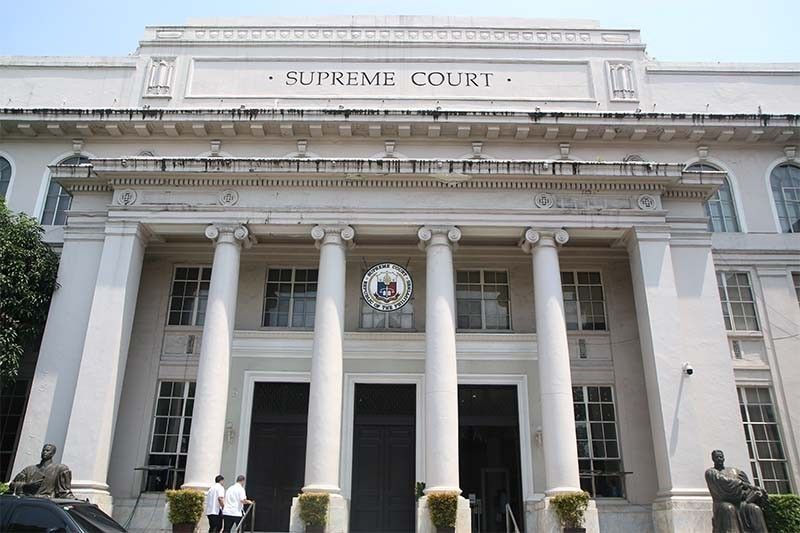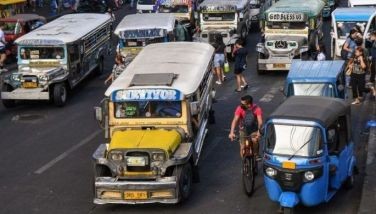Revived human rights committee, judicial activism discussed in interview of SC aspirants

MANILA, Philippines — The Supreme Court has recently revived its Committee on Human Rights, but at least one applicant to the SC bench thinks resources and brainpower of the tribunal may be more efficiently allocated.
Facing the Judicial and Bar Council on Wednesday, Court of Appeals Associate Justice Apolinario Bruselas Jr. said there might have been more prudent way to marshal SC resources than reviving the Human Rights Committee.
The committee, chaired by Associate Justice Marvic Leonen, is now looking into progressive groups’ report on killings and threats against lawyers in the past decade.
“With due respect to Justice Marvic Leonen, again, I think this is a matter of concerning the resources of the SC. We cannot be having creating committees left and right and dispersing SC assets, brainpower into these committees,” Bruselas said.
If the committee is meant to prioritize or monitor cases involving human rights, Bruselas said there “is a less more efficient and less cumbersome way” of addressing them without creating a committee.
Bruselas penned the ruling that reversed the acquittal of a police officer who manned a checkpoint during the 2009 Ampatuan massacre and another ruling that granted former Sen. Antonio Trillanes IV to reverse the Makati court’s ruling which revived the rebellion case against him following President Rodrigo Duterte’s revocation of amnesty.
He is one of the ten applicants vying for the seat vacated by Associate Justice Edgardo delos Santos, who retired on June 30.
When Chief Justice Alexander Gesmundo sought clarification on this, Bruselas explained that he did not mean the committee is a waste of resources, but that the SC “should take care of and not spread resources too thinly.”
Sandiganbayan Presiding Justice Amparo Cabotaje-Tang previously led the technical working group on human rights created during the time of then-chief justice Maria Lourdes Sereno.
Tang, who also faced the JBC on Wednesday, said they only had one activity then. “We had this objective was to study whether the remedy on writ of amparo is effective in addressing violations on the life, liberty and security” of the public.
She said they submitted a report to Sereno “but nothing came out of those reports.” A second letter was addressed to then Acting Chief Justice Antonio Carpio but there was also no action on the request, Tang added.
Judicial activism
The JBC also asked the applicants on judicial activism.
Finance Undersecretary Antonette Tionko, the only applicant coming from outside the Judiciary, said she does not agree with judicial activism, which she defined as when “a judge or justice propounds his own ideas, furthers his own ideas.”
Comelec Commissioner Antonio Kho Jr., who is also an “outsider” of the Judiciary, was supposed to undergo the public interview with the four on Wednesday but he withdrew his application before he faced the panel.
Asked the same question, Bruselas said he believes courts should not be “judicial overactive” and should rather be “more respectful to other branches of government.”
“Courts are designed to act on justiciable case or controversy,” the CA justice said, but Bruselas said that if a particular view of the justice or judge comes up while settling a controversy, it may be so.
But it “does not mean to say that the court should look at it as means of espousing, advocating what its way of thinking,” Bruselas said as these “should be all incidental.”
For Cabotaje-Tang, judicial activism means the court is taking a proactive stand certain issues where it would deviate “from what has been adopted in the past by the SC.”
The Sandiganbayan presiding justice said the SC issuing a writ of continuing mandamus to compel executive agencies to rehabilitate Manila Bay would count as judicial activism. “Because the court of the first time, exercised judicial supervision over all these executive agencies directed to clean up Manila Bay.”
Associate Justice Ramon Cruz, who was last to face the panel, meanwhile, said he believes judges should not be proactive too, noting that it is the “traditional sense” that they wait for pleadings submitted to them.
Pressed by retired Justice Noel Tijam on whether or not this would result in delay in disposition of cases, Cruz asserted that delay would depend on a part judge who should have known, during the pre-trial conference, what to do with the case.
Others who applied for Delos Santos’ vacated seat are Court of Appeals Associate Justices Japar Dimaampao, Ronaldo Roberto Martin, and Maria Filomena Singh, Sandiganbayan Associate Justice Geraldine Faith Econg, Court Administrator Midas Marquez and Deputy Court Administrator Raul Villanueva.
They no longer faced the JBC as their interviews are considered still valid.
- Latest
- Trending

































